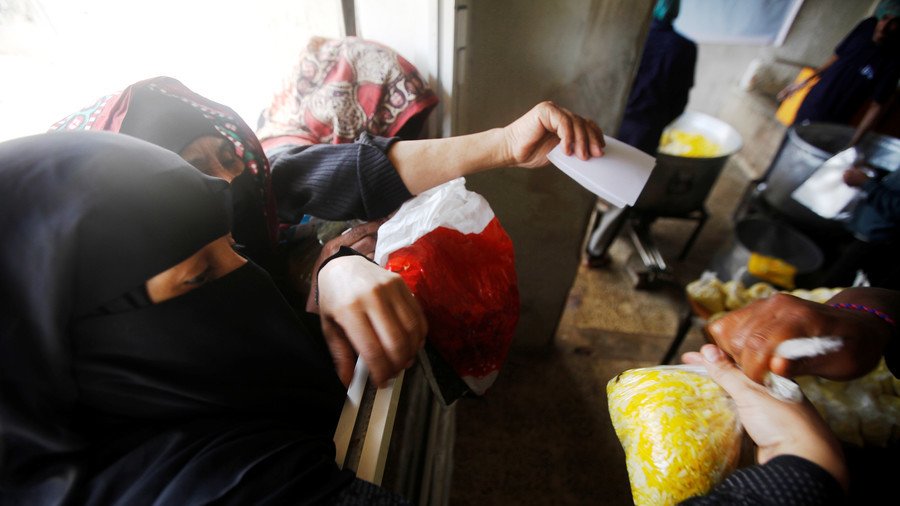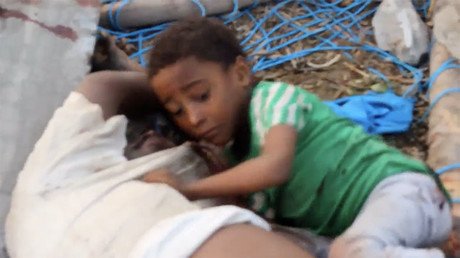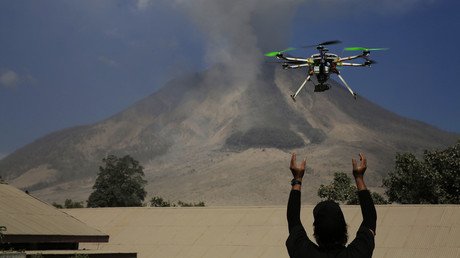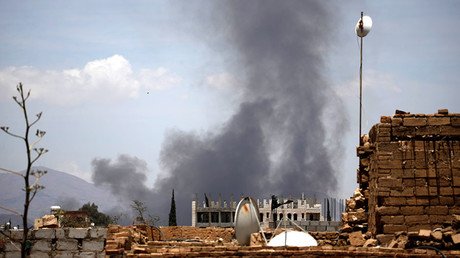War-torn Yemen's infrastructure in full collapse, crisis is one of the worst – Red Cross

Yemen, where Saudi Arabia is waging a bombing campaign with thousands of civilian victims, is facing the collapse of its whole infrastructure and not enough aid is coming in, the former Red Cross head in Yemen told RT.
"It's wider than a famine," Alexandre Faite said of the situation in the country. "There's a problem with structural collapse of the system in Yemen. You have problems of water, you have problems of sanitation… There's also a crisis that has led to a million suspected cases of cholera last year."
With the country's infrastructure falling apart due to the ongoing fighting, "it's not only one of the most serious crises that I've seen, it's one of the most complicated," the International Committee of the Red Cross (ICRC) official said.
The Red Cross has been doing everything in its power to fix the problems in Yemen, but its efforts are not sufficient, he said. "There is no doubt that what's coming into the country at the moment isn't enough and more should be done. Humanitarian aid to a large extent is allowed in, but the problem is that more is needed to ensure a decent level of life for the population otherwise the country is going downhill," Faite, whose two-year mission to Yemen concluded earlier in April, warned.
When asked if the partial blockade of Yemen by Saudi Arabia, which intervened in the country in 2015 to fight the Houthi rebels and help reinstate ousted President Mansour Hadi, was the reason for lack of aide, the ICRC official replied that there was a "combination of reasons" for the complications, including the fact that shipping companies "think twice" before sending cargo to Yemen due to the risks created by the volatile security situation.
The death of Red Cross worker Hanna Lahoud in Yemen last week is "a stark reminder that working in Yemen remains extremely difficult" for humanitarian organizations, he said.
Faite also commented on the Sunday airstrike by the Saudi-led coalition, which killed 20 to 50 people at a wedding in Yemen's Hajjah province. "In the two years that I have been in Yemen, I have seen unfortunately quite a few other cases just like this one. When you have a military operation on the scale which is now taking place in Yemen, these things unfortunately happen," he said.
READ MORE: Up to 50 killed in Saudi-led air strikes on Yemen wedding – local health officials
He assured that the attack was documented by the Red Cross staff on the ground, as it's done with all potential violations in order to submit reports that will "hopefully help for the future to bring more care to the way operations are conducted."
He urged the "attack side," which is apparently Saudi Arabia, to "take percussion in the way they carry out attacks because they use vastly destructive forces… It's also crucially important that all those, who are on the other side, don't place their military assets near villages and towns."
Faite also said that "there's more awareness" about the Yemeni crisis now than when he began his work in the country two years ago. "For a long time, Yemen used to be not under the spotlight. At least, I feel now that the Yemen conflict is getting the attention it deserves."
More than 5,500 civilians were killed and over 9,000 injured in Yemen as of the end of 2017, the UN said. Human right groups have been blaming the casualties on indiscriminate airstrikes by the Saudi-led coalition, with the US and UK also criticized for supplyin
After three years of fighting, more than 22.2 million people in Yemen need assistance, with 60 percent of the population lacking food and more than half of the country left without basic medical services, according to the UN.















